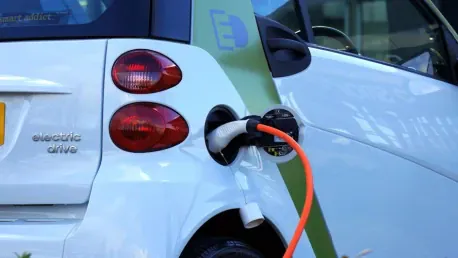Canada is seriously evaluating the imposition of import tariffs on Chinese-made electric vehicles (EVs) as Deputy Prime Minister Chrystia Freeland announced this potential policy shift in response to China’s “state-directed policy of overcapacity.” According to Freeland, these policies create an unfair competitive landscape for domestic EV manufacturers. Public consultations are scheduled to begin on July 2, aiming to develop a well-rounded policy response that may include import tariffs among other measures.
Growing Concerns Over Chinese EVs
Impact on Canadian Auto Sector
The concern over an oversupply of Chinese EVs threatening Canada’s auto sector is not an isolated sentiment, echoing similar anxieties in the United States and the European Union. Recently, the United States initiated significant tariffs on various Chinese imports, including EVs, aiming to protect its own burgeoning EV industry. Similarly, the European Commission is considering additional duties, potentially as high as 38.1 percent, on EVs from Chinese manufacturers such as BYD, Geely, and SAIC. These moves underscore a unified Western apprehension about China’s growing dominance in the EV market, which is perceived to be bolstered by state subsidies and overcapacity.China has consistently denied allegations of unfair subsidies or market manipulations. Chinese officials argue that the nation’s advancements in the EV sector are the result of technological superiority and robust supply chain management. These assertions were echoed in a state-backed Global Times editorial that urged Canada to adopt a “strategically rational” approach. The editorial cautioned that imposing tariffs could adversely impact bilateral relations and economic cooperation between the two countries. Despite this, Canadian officials seem determined to protect domestic interests, with Ontario Premier Doug Ford advocating for tariffs as high as 100 percent on Chinese EVs.
Domestic Pressure and Strategic Positioning
At the heart of the issue is a growing clamor within Canada to safeguard local jobs and the manufacturing sector. Premier Doug Ford, who represents Ontario—a key hub for the nation’s automotive industry—has been vocal about the need for protective tariffs. Ford’s demands for at least 100 percent tariffs reflect deep-rooted concerns over the competitiveness of Canadian manufacturers in the face of what is perceived as an inundation of cheaper Chinese EVs. In this context, Freeland’s announcement appears to be a governmental response to both domestic and international pressures.The Trudeau administration has been fervently working to cement Canada’s role in the global EV supply chain. Multi-billion-dollar investments have been promised to attract companies engaged in various facets of the EV industry. Freeland emphasized that all options remain on the table, including tariffs on essential EV components such as batteries. By using all available trade action tools, the government aims to create a level playing field for Canadian businesses. This strategy not only addresses immediate economic concerns but also aligns with Canada’s broader long-term vision for its role in the EV market.
Geopolitical and Economic Ramifications
Aligning with Western Allies
Canada’s contemplation of imposing tariffs on Chinese EVs aligns it with recent moves by key Western allies like the United States and the European Union. This alignment is not merely economic but also geopolitical, reflecting a growing consensus among Western nations about countering China’s trade practices. The United States has already imposed steep tariffs on several Chinese imports, including EVs, as part of its broader strategy to protect domestic industries. The European Commission, too, is on the verge of implementing additional tariffs on Chinese EVs.This unified Western stance suggests a coordinated effort to limit China’s influence in the global EV market. By aligning itself with these actions, Canada strengthens its geopolitical ties with its Western allies. However, such measures come with inherent risks, including potential retaliatory actions from China. Despite these risks, Freeland has been clear that the Canadian government will explore all options to protect its economic interests. The upcoming public consultation will serve as a platform for various stakeholders to voice their concerns and suggestions, shaping the final policy framework.
China’s Response and Future Relations
Canada is seriously considering the implementation of import tariffs on electric vehicles (EVs) manufactured in China. Deputy Prime Minister Chrystia Freeland announced this potential policy shift as a countermeasure to China’s “state-directed policy of overcapacity,” which, according to her, fosters an unfair competitive environment detrimental to domestic EV manufacturers. The Canadian government believes that China’s policies disproportionately favor their own firms, leading to market imbalances.To address this issue comprehensively, public consultations are slated to commence. These discussions will focus on creating a robust policy response. Import tariffs are just one of the potential measures under review to level the playing field for Canadian EV producers. Other measures and strategies may also be explored to ensure that local manufacturers can compete on more equal terms. The overarching goal is to safeguard Canada’s burgeoning EV industry from external policies that could stifle its growth and sustainability, all while considering the broader economic implications.









